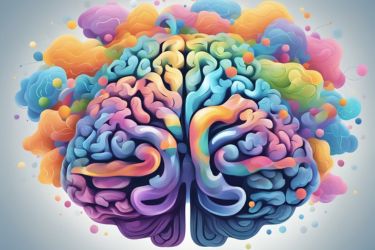Emotional intelligence and empathy are crucial skills that impact our interactions with others. When we develop emotional intelligence, we gain the ability to understand our own feelings and those of others. This connection allows empathy to flourish, enabling us to relate to and support others in meaningful ways.

Research shows a clear link between these two concepts. Emotional intelligence helps us manage our emotions, while empathy allows us to recognise and respond to the emotions of those around us. Together, they enhance our communication and relationships, making them essential for personal and professional success.
As we explore the relationship between emotional intelligence and empathy, we will uncover how these skills contribute to better decision-making, improved leadership, and deeper connections with others. Understanding this link can empower us to cultivate these abilities in ourselves and those we interact with daily.
Exploring the Fundamentals of Emotional Intelligence

Emotional intelligence (EI) is crucial for understanding and managing our emotions and the emotions of others. It affects how we connect with people and navigate social settings. Let's dive into the basics of EI and identify its key components.
Defining Emotional Intelligence
Emotional intelligence is the ability to recognise, understand, and manage our own emotions while also being aware of others’ feelings. We can think of it as a skill set that helps us interact better with others.
This concept involves several key areas. First, it includes self-awareness—knowing our emotions and how they affect our behaviour. Then, there's self-regulation, which refers to controlling our feelings and reactions. Furthermore, empathy plays a big role, allowing us to relate to others' emotions and respond appropriately.
Components of Emotional Intelligence
There are five main components of emotional intelligence:
-
Self-awareness: This is our ability to recognise our own emotions and their impact on our thoughts and actions. It helps us understand our strengths and weaknesses.
-
Self-regulation: This involves managing our emotions, especially in stressful situations. It allows us to respond rather than react impulsively.
-
Motivation: A strong drive to achieve goals can come from within. It pushes us to pursue our objectives despite challenges.
-
Empathy: Understanding emotions in others is essential. Empathy allows us to connect and support those around us.
-
Social skills: These are our abilities to build and maintain relationships. Good social skills help us communicate effectively and resolve conflicts.
Together, these components form the foundation of emotional intelligence, aiding us in both personal and professional contexts.
The Role of Empathy in Emotional Intelligence

Empathy is a crucial part of emotional intelligence (EQ). It helps us connect with others and understand their feelings. In this section, we will explore understanding empathy, the different types, and its significance in emotional intelligence.
Understanding Empathy
Empathy is the ability to recognise and share the feelings of another person. It involves emotional awareness, which allows us to respond appropriately in social situations. We often think of empathy as being kind and compassionate towards others. By understanding what someone else is experiencing, we can offer support. This ability is vital in both personal and professional relationships.
Types of Empathy
There are mainly two types of empathy: cognitive empathy and emotional empathy.
-
Cognitive Empathy: This type allows us to understand another's perspective. It is more about thinking and reasoning. For example, it helps us analyse situations from another person’s point of view.
-
Emotional Empathy: This involves actually feeling what others feel. It leads to compassion and can motivate us to help someone in distress. Understanding these two types helps us improve our social interactions and relationships.
Empathy as a Core Element of EQ
Empathy is a core element of emotional intelligence. We can enhance our EQ by developing our empathy skills.
-
Improved Communication: With empathy, we can communicate better. We can express understanding and care, making conversations more meaningful.
-
Stronger Relationships: Empathy builds trust. When we show that we care, relationships strengthen, both at work and home.
-
Conflict Resolution: Empathy helps us resolve conflicts. It allows us to see all viewpoints, leading to more effective solutions.
By developing empathy, we improve our emotional intelligence, leading to better interactions and a more connected environment.
Interpersonal Dynamics and Social Awareness

In our interactions, social awareness and interpersonal skills play crucial roles. These abilities help us connect better with others, understand their feelings, and react appropriately. By focusing on these dynamics, we can enhance our relationships significantly.
Enhancing Social Interactions
To improve social interactions, we must pay attention to the feelings of those around us. This involves being aware of our environment and recognising social cues. Understanding things like body language and tone of voice can provide insights into how others feel.
Key Strategies:
- Observe Nonverbal Cues: Look for facial expressions and gestures that indicate someone's feelings.
- Respond Appropriately: Tailor our responses based on the emotions we perceive. This shows that we value the other person's feelings.
When we practice these skills, we create a more positive and engaging atmosphere that fosters better communication.
The Importance of Active Listening
Active listening is essential in any conversation. It goes beyond simply hearing words; it involves fully engaging with the speaker. By concentrating on what is being said, we can better understand the speaker's perspective.
Active Listening Techniques:
- Maintain Eye Contact: This shows that we are focused and interested.
- Use Verbal Nods: Simple affirmations like "I see" or "I understand" encourage the speaker to continue sharing.
We should refrain from interrupting and allow others to express themselves fully. This builds a stronger connection and promotes mutual understanding.
Building Trust and Understanding
Trust is fundamental in any relationship. When we display empathy and social awareness, we contribute to a trusting environment. We demonstrate that we care about the thoughts and emotions of others.
Ways to Build Trust:
- Be Honest: Transparency in our motives and actions fosters trust.
- Show Consistency: Reliability in our responses helps others feel secure.
Understanding others involves recognising their feelings and perspectives. This not only strengthens our relationships but also enhances our overall social dynamics. By working together, we create a supportive environment that nurtures trust and understanding.
Developing Emotional Intelligence in Leadership

To be effective leaders, we need to focus on enhancing our emotional intelligence. This helps us understand our own emotions and those of others, allowing us to create a supportive work environment. We can achieve this through targeted strategies that develop our skills.
Leadership and Emotional Intelligence
Leadership success relies heavily on emotional intelligence. Leaders with high emotional intelligence can recognise their emotions and manage them effectively. They also understand the emotions of their team members, allowing for better decision-making and trust.
Key aspects we must develop include:
- Self-awareness: Knowing our strengths and weaknesses helps us lead with confidence.
- Self-regulation: Controlling impulses and emotions aids in making rational decisions.
- Motivation: Cultivating a drive to achieve gives us influence over our teams.
Developing these skills enhances our political awareness. This enables us to navigate workplace dynamics and build strong relationships.
Fostering Team Relationships
Building strong team relationships is essential for fostering a positive work environment. We can cultivate empathy by actively listening to our team members. This allows us to acknowledge their perspectives and experiences.
We should also leverage the diversity within our teams. Embracing different backgrounds enriches our problem-solving skills. This inclusion leads to better team performance and morale.
Additionally, service orientation is about putting the needs of our team first. When we prioritise their well-being, we build loyalty and trust. This approach creates a collaborative atmosphere that promotes productivity and engagement.
Application of Emotional Intelligence Across Lifespan
Emotional intelligence plays a vital role throughout our lives. It affects how we relate to others, manage our emotions, and handle stress. Understanding the application of emotional intelligence at different life stages can enhance our personal and social experiences.
Influence of Age on Emotional and Empathic Development
As we age, our emotional intelligence and empathy tend to evolve. Younger individuals may struggle with self-regulation and understanding others’ feelings. Meanwhile, as we move into adulthood, we often gain better self-awareness and empathy.
Research shows that middle-aged adults typically exhibit higher emotional intelligence. They are usually more effective at managing stress and navigating complex social situations. By the time we reach older age, many of us may utilise our emotional intelligence to foster deeper relationships and provide support to others.
Emotional Intelligence in Personal Relationships
Emotional intelligence significantly impacts our personal relationships. When we understand our own emotions, we can better navigate romantic and familial connections. High emotional intelligence enables us to communicate more effectively and resolve conflicts.
Individuals with strong emotional quotients (EQ) are often more attuned to their partner’s feelings. This awareness leads to higher relationship satisfaction. In addition, utilising empathy fosters stronger bonds with friends and family. We can create supportive environments where everyone feels valued and understood.
Impact on Mental Health and Productivity
Emotional intelligence is linked to both mental health and workplace productivity. People with high EQ often manage stress more effectively. They can recognise their emotional triggers and respond to them in healthy ways, reducing anxiety and depression.
In the workplace, individuals who leverage emotional intelligence are usually more productive. They can collaborate effectively, leading to better teamwork and communication. Those with strong empathy are often skilled in conflict resolution, contributing to a positive work environment. Overall, emotional intelligence is key to improving both our mental well-being and professional performance.





















